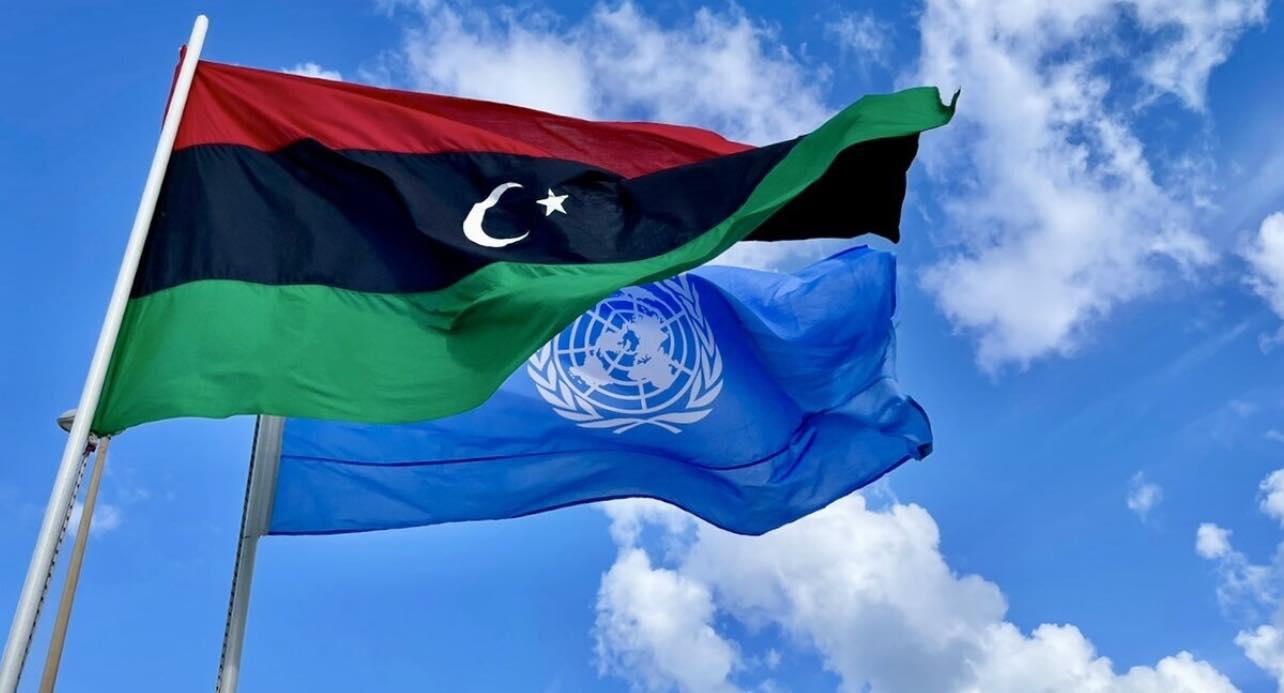On April 16, the Special Representative of the UN Secretary General for Libya, Abdoulaye Bathily, unexpectedly announced his resignation, citing a lack of political will and good faith among Libyan leaders as the cause of the UN mission’s faltering efforts he had led for 18 months. Bathily’s resignation makes him the ninth UN envoy to Libya to resign since the downfall of former President Muammar Gaddafi’s regime in 2011.
Despite the multiplicity of UN envoys to Libya in recent years, their efforts remain ineffective, with no practical outcomes at the political level. This raises the question of why all the UN missions to Libya have been faltering, a situation that gave rise to the continuation of the conflict in Libya and the inability to create pathways leading to a solution to the insurmountable political crisis that has been persisting for years.
Factors Impeding UN Peacebuilding Efforts in Libya
Bathily’s resignation came as a response to the political stagnation and impasse that Libya has been experiencing, with the failure of Bathily’s dialogue initiative that he put forward in November 2023, as well as other endeavors to create a new pathway that would break the impasse. Arguably, this resignation was driven by several factors primarily characterized by stagnation, complexity, and conflicting interests, resulting in the perpetuation of the crisis.
In this vein, an examination of the challenges encountered by UN missions is, thus, crucial. Here is a breakdown of these factors:
1. Libya’s Dual Power Dilemma: One of the main obstacles to the UN missions’ ability to carry out their tasks in Libya is the dual power crisis, which has been persisting for years. This situation has extremely detrimental effects on Libya’s political path because it perpetuates a conflictual de facto, forces conflicting political parties to compete for power, makes it difficult to approve various policies, especially when it comes to approving the country’s unified budget and other strategic issues like organizing the security institution and holding elections, prevents the creation of specific agreements rather than broad ones regarding important priorities like the elections, and fuels new security disruptions stemming from the ongoing crisis of dual power and competition for sovereign positions.
Currently in Libya, there are six main active entities in the Libyan scene, namely the Libyan House of Representatives led by Aguila Saleh, the High Council of State led by Muhammad Takala, the Libyan Presidential Council led by Mohamed al-Menfi, the Libyan National Army led by Khalifa Haftar, the outgoing Government of National Unity led by Abdul Hamid Dbeibeh, which is based in Tripoli, and the Government of National Stability headed by Osama Hammad, appointed by Libya’s House of Representatives.
2. The UN Mission’s Deteriorating Relationship with Some Parties: One of the primary considerations in understanding the state of impasse that engulfs the work of the UN missions in Libya is the problems that plague the UN mission’s relationship with some of the active parties in the Libyan case. Mohammed Takala is a case in point. There have been significant agreements between Takala on the one hand and the Libyan House of Representatives and the Government of National Stability on the other, to the point where Osama Hammad’s government accused him of not being neutral and has demanded that the UN Secretary-General dispatch a new UN envoy.
Turning to the outgoing Dbeibeh government, we find that despite the repeated announcements of their openness to the call for dialogue launched by the UN envoy—which states that elections must be held in light of the current constitutional and legal basis approved by the House of Representatives—Dbeibeh and his government officials have expressed reservations about the content of the Bathily dialogue initiative. Instead, Dbeibeh proposed the establishment of a constitutional legal framework to ensure the initiation and smooth progress of the electoral process.
This indicates that the Dbeibeh camp disregards the current legal and constitutional foundation, which is strengthened by the Security Council’s decision. This runs counter to Bathily’s stated goal of having discussions take place in a setting where the two laws passed by the House of Representatives are recognized, and no party should be given power beyond what is required by these laws.
3. Lack of Comprehensive Approaches to Resolving the Libyan Crisis: Considering the nature of the work carried out by consecutive UN missions in Libya since 2011, it can be observed that these missions focused on defragmentation of issues rather than implementing a comprehensive approach that integrates the political, economic, and military aspects. The outcome? A significant failure makes any real, concrete progress towards the formation of a unified government, the unification of Libyan security institutions, the resolution of the militia dilemma, the completion of national reconciliation, or the capacity to establish any pathways for addressing the economic crisis that the country is currently experiencing.
4. Continuation of Militia Activity Dilemma: It is safe to state that the ongoing militia problem and their destabilizing actions, particularly in western Libya, are the biggest security challenges confronting Libya and have the potential to have detrimental political effects. Several factors contribute to the gravity of this problem, including the dominance of competitiveness among these armed groups spread throughout Libya, some Libyan parties taking increasing measures to legitimize militia activities, and the inability to control their movements.
Notably, the continued presence of militias in Libya complicates the work of UN missions on multiple levels. First, these militias complicate Libya’s internal security situation. Second, they impede the completion of certain strategic tasks, most notably the unification of Libyan security institutions. Third, they have emerged as one of the primary de facto actors in the Libyan scene, emphasizing the importance of addressing this issue alongside other priorities such as electoral entitlement and security institution unification.
5. Limited Leverage of UN Envoys: The UN envoy’s responsibilities are arguably limited to serving as a facilitator or mediator between the parties involved in the crisis. The envoy’s lack of effective pressure tools, their inability to provide any guarantees to address any party’s reversal of the existing or approved understandings, and their lack of special powers to propose new detailed arrangements in light of their role, which does not exceed the limits of the facilitator, all contribute to their ineffectiveness.
6. Lack of Inclusivity: One of the main issues confronting UN missions in Libya is the marginalization of certain actors on the scene. For instance, certain circles believed that the Bathily dialogue initiative was confronted with a significant challenge: the marginalization of certain significant parties in the Libyan scene. This was evident in the government of Osama Hammad in eastern Libya, which is recognized as a legitimate political party that emerged from the Libyan House of Representatives. Additionally, the initiative neglected to include representatives from the southern Fezzan region, as well as Saif al-Islam Gaddafi’s party and certain specific groups such as the Amazigh, Tuareg, and Tabu. This issue causes many circles to reserve or reject the initiative altogether.
7. The Challenge of Competing International Interests: For years, the Libyan file has been characterized by a large number of external interventions, as well as the presence of various agendas and visions for all of the forces involved. This problem presents a number of challenges. The UN envoy’s ability to carry out their duties is hampered by the calculations of some international parties, and they are virtually powerless to overturn the calculations of some active parties. Furthermore, some of these international parties hold veto power in the Security Council. All of these external considerations add to the challenges and complications faced by the United Nations mission in Libya.
In conclusion, Bathily’s resignation, making him the ninth UN envoy to Libya to do so, confirmed an important assumption: the existence of complex and complicated problems that successive UN missions in Libya encounter. It also expressed the country’s political crisis and stagnation, as well as Bathily’s inability to resolve or deal with the situation. Stephanie Khoury, a US national, is currently serving as the acting UN envoy. Given the limited options available to her, it appears that Khoury is leaning towards one of two scenarios: reviving Bathily’s dialogue initiative or starting over and presenting an alternative initiative and vision.
In conclusion, Bathily’s resignation, making him the ninth UN envoy to Libya to do so, confirmed a critical reality: the existence of deeply entrenched and intricate challenges that that have consistently plagued successive UN missions in Libya. It also expressed the country’s political crisis and stagnation, as well as Bathily’s inability to resolve or deal with the situation. Currently, Stephanie Khoury, a US , is currently serving as the acting UN envoy. Given the limited options available to her, it appears that Khoury is leaning towards one of two scenarios: reviving Bathily’s dialogue initiative or starting over and presenting an alternative initiative and vision.













